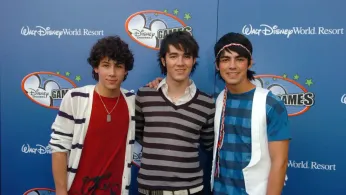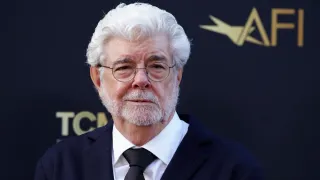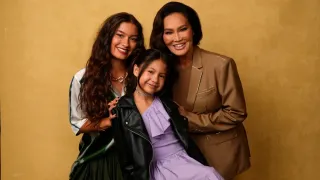
5 hours ago
Nick and Joe Jonas Reflect on Uncomfortable Questions About Purity Rings During Teen Stardom
READ TIME: 3 MIN.
Nick and Joe Jonas, members of the globally recognized Jonas Brothers, are revisiting a formative—and often uncomfortable—chapter from their youth. During a recent appearance on the “Podcrushed” podcast, the brothers recounted how, as young teenagers, they were repeatedly asked about their decision to wear purity rings—jewelry symbolizing a personal commitment to abstain from sex until marriage—a choice made within their church community and family upbringing .
For the Jonas Brothers, who signed their first record deal as young adolescents—Kevin at 17, Joe at 15, and Nick at 12—public attention around their purity rings quickly became an uncomfortable focal point. Joe Jonas explained, “One person on an interview when you're 15, 16 would ask you about it, and you're like, 'I don't want to talk about this,' and then they're like, 'Well, I'm going to write that you guys are in a cult'” .
The brothers’ experiences underscore a recurring issue within celebrity culture: the tendency for public figures—especially young ones—to be pressured into sharing deeply personal information. As Nick and Joe described, questions about their purity rings often crossed boundaries, shifting from curiosity to invasive scrutiny . This scrutiny was amplified by media fascination with their religious upbringing and perceived moral values, sometimes resulting in sensationalized headlines and misconceptions about their faith and family .
While the purity ring tradition was common in their church community, the brothers were unprepared for the level of attention—and judgment—it attracted in the public eye. “Famously we were known for like purity rings, which were something in the community of a church where that was like what everybody else our age were doing around 10, 11 years old, like, we're going to wait for the right person," Joe said on the podcast .
The Jonas Brothers’ reflections are especially relevant to current conversations about media ethics, consent, and the protection of young people's privacy—issues that resonate across youth communities, including LGBTQ+ individuals. Young LGBTQ+ celebrities and public figures often face similar or even heightened scrutiny about their identities, relationships, and personal choices, sometimes from a much younger age. This can result in pressure to define or defend aspects of themselves before they are ready, mirroring the discomfort described by Nick and Joe Jonas .
For LGBTQ+ youth, these pressures can be compounded by the risk of outing, discrimination, or misunderstanding. The Jonas brothers’ experience serves as a reminder of the importance of respecting boundaries and allowing young people—regardless of gender identity or sexual orientation—to navigate personal milestones at their own pace, free from public interrogation .
As the Jonas brothers have matured, they have spoken openly about moving beyond their adolescent commitments, including their decision to eventually remove their purity rings. In earlier interviews, they have acknowledged that the expectations placed on them as teenagers were unrealistic and, in hindsight, unfair . Joe Jonas explained, “When you’re 12 and you do that… we grew up in a church, and our dad was a pastor… it was kind of just natural for everyone we grew up to go through this. Some people said, ‘I’ll wait for the right person,’ some people say ‘I’ll wait till marriage.’ When you’re about 15/16, and you start dating, you go ‘wait a minute’…” .
The brothers’ willingness to discuss these issues now offers a valuable perspective on the importance of autonomy, informed consent, and privacy for all young people in the public eye. For LGBTQ+ audiences, their story reinforces the need for media and fans to respect individuals' journeys—whether around sexuality, relationships, or personal beliefs—and to challenge any narrative that demands premature disclosure or justification.
The Jonas Brothers’ story is not just about one family’s religious tradition or a fleeting pop culture moment; it highlights the need for greater sensitivity and responsibility in media coverage of youth—especially those navigating questions of identity and belonging. As conversations about privacy, consent, and LGBTQ+ affirmation move forward, the lessons from Nick and Joe Jonas’s experiences serve as a crucial reminder: young people deserve to grow, explore, and express themselves on their own terms, without undue pressure from the public or the press .






